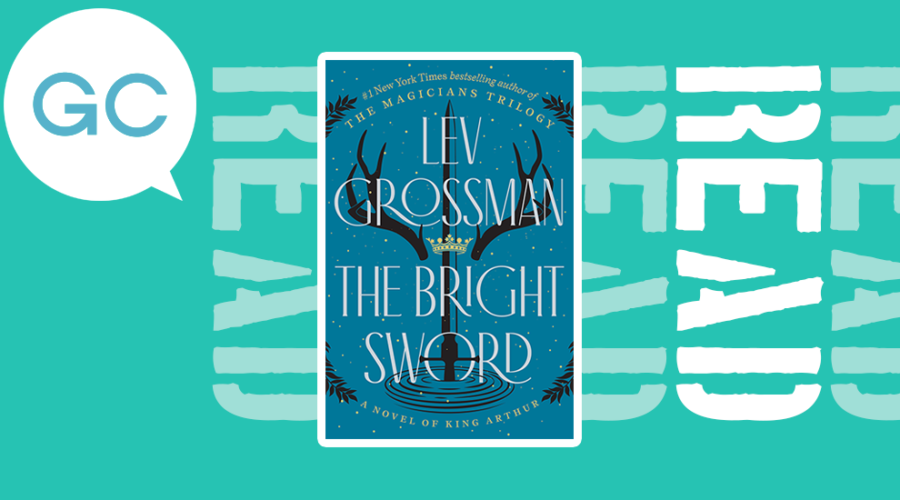Years ago, in a swampy D.C. summer., I got the chance to interview Lev Grossman about The Bright Sword, which was then a book in progress. I had been enthralled by Lev’s Magicians trilogy, and the idea that he was now focused on a retelling of the legend of King Arthur thrilled me down to the place in which I carry my childhood memories, my initial contact with myths.
This summer, The Bright Sword made it to bookstores at last, and I read by the pool in the shade of tall Colorado pines, which should’ve have made me feel far even further away from the narrative than D.C. did, except as Grossman has demonstrated, Arthur is someone you carry with you anywhere.
Let’s get the obvious stuff out of the way first: Yes, The Bright Sword is this century’s first great literary retelling of the story of Camelot. You should read this book even if you’re not familiar with the myth itself, and maybe especially so. You should read it even if you’re one of those Americans who isn’t interested in, or is even annoyed by, the great historic and imaginary sprawl that is British mythos.
Arthur is not considered a real historical figure. That is, in fact, his great power. His legend is a mirror. Many writers have gazed into it, with varying results. Downfall and tragedy shadow Arthur’s steps, but what to make of the darkness at the heart of his story has always been up to us. Arthur is longing personified — and this longing is captured in The Bright Sword in intimate and thoughtful fashion — the fallen king who must return, because people need him to, dammit.
Grossman is a magician in his own right, and what emerges is a true epic, just a deeply felt one
In Grossman’s retelling, the need of the orphaned people, their pain, their desire to be a part of something greater than themselves, a shimmering and unattainable whole, drive the gorgeously whacked-out plot. Obscure but canonical knights take center stage, Nimue supersedes Arthur, a scarred and unwanted bastard child searches for his purpose; this entire premise could’ve have been just another didactic treatise about how much it sucks to be marginalized in a cruel world, except of course Grossman is a magician in his own right, and what emerges is a true epic, just a deeply felt one; a kind one, even.
Kindness, I think, is underrated in literature. A love for your characters can be seen as embarrassing, and it can obviously dull a story if it means you don’t take risks. Writers today are further burdened by the onslaught of social media; I’ve picked up too many fantasy books as of late that seem to be preoccupied with the question, “But what will some random-but-easily-bruised clique on Twitter think?” The Bright Sword has too much muscle for all that.
If you’re worried that Arthur is sidelined by the plot, never fear, because even though the story starts in a time after his death, it is not linear, and we get to meet the king. He’s brilliant and powerful, as befits him, but Grossman makes self-doubt Arthur’s true weakness, and it’s the thread of self-doubt that cuts painfully through the book. Legends may be legendary, but they still pause in anguished overthinking, they still get lost in the dark landscape of their minds, and Grossman knows this.
A world that’s eternally coming apart at the seams in one way or another is the only world we know, for better or for worse (even the most privileged cannot cheat death), and The Bright Sword asks, “Why? Why does it have to be like that?”
Grossman’s ultimate answer is, “Because.” But also, “But you can love this world, and love your friends, if you’re reckless and brave enough.”
When the Magicians first came around, Grossman was touted as “J.K. Rowling for adults.” I guess with arrival of The Bright Sword, people may call him, “An author for people who are drawn to George R. R. Martin but are exhausted by all of the emotional sadism.”
All of that may be the case, but it’s also simplistic and unfair. Grossman is his own writer and phenomenon. Entirely reckless and brave enough.

